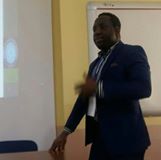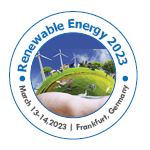
Ndzembanteh Aboubakary Nulambeh
THE UNIVERSITY OF BAMENDA · Department of Economics PhD
Title: Exploring the Energy-Environment Growth Nexus in Francophone Africa in Presence of Institutions
Biography
Biography: Ndzembanteh Aboubakary Nulambeh
Abstract
Abstract This paper analyses the role of renewable energy, ecological footprint and institutions on economic growth (measured by per capita GDP) in Francophone Africa using the generalised method of moments (GMM). The results show that renewable energy is negatively correlated with economic growth, which is likely attributable to the high share of woody biomass in these countries. For ecological footprint, the correlation is positive and statistically significant, which links economic growth to environmental degradation. Among the institutional variables, voice and accountability, political stability and the rule of law have a positive significant effect on economic growth while governance effectiveness, regulatory quality and control of corruption are positively related but do not have a statistically significant effect.
The insignificant relationship between governance effectiveness, regulatory quality, control of corruption and economic growth implies that institutions in Francophone African countries are underdeveloped. Thus, strengthening the forms of institutions will promote growth in these countries. This study therefore contributes to the view that economic growth not only emerges with environmental degradation but that it can be improved with renewable energy and robust institutions. Consequently, it is recommended that policymakers develop policies that raise growth with a focus on improving the quality of the environment.
These policies include incorporating pollution taxes to discourage foreign companies from polluting the environment and encouraging renewable energy consumption through public investment, as well as changes in fiscal and financial policies (including carbon taxes, grants and incentives). Likewise, policies that facilitate the deployment of renewable technologies with free or low-cost installations for lowincome households should be implemented. These recommendations will aid Africa in achieving the goal of substantially increasing the share of renewable energy as foreseen under the United Nations SDG 7. Keywords Renewable Energy, Ecological Footprint, Economic Growth, Institutions JEL Classification E44, F36, G21, O15

